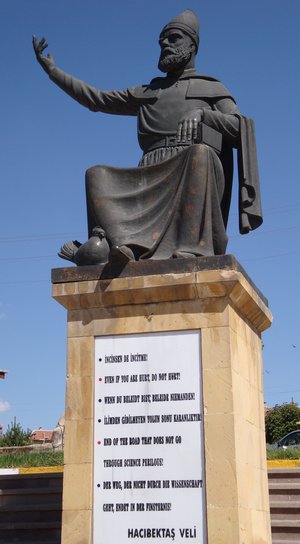Hacı Bektaş Veli was a Sufi thinker, originally from Khorasan in Iran, who arrived in Hacıbektaş (then the village of Sulucakarahöyük) in Central Anatolia some time between 1270 and 1280. There he developed a philosophy emphasising the importance of science and reason, and permitting women an equal part in daily life. Images of Veli usually show him embracing a deer and a lion, an allegorical rendering of his teachings about peace and tolerance. Others show him with a pigeon, the guise in which he is said to have flown to Anatolia.
When he died in 1337 he was buried in the village and his shrine slowly evolved into an important pilgrimage site and the centre of a complex around his tomb.
Among the Alevis, the followers of Ali, a Muslim splinter group with perhaps 10 million adherents in Turkey, Veli is especially revered and the annual Hacıbektaş Festival (16-18 August) forms one of the high points of their calendar.

